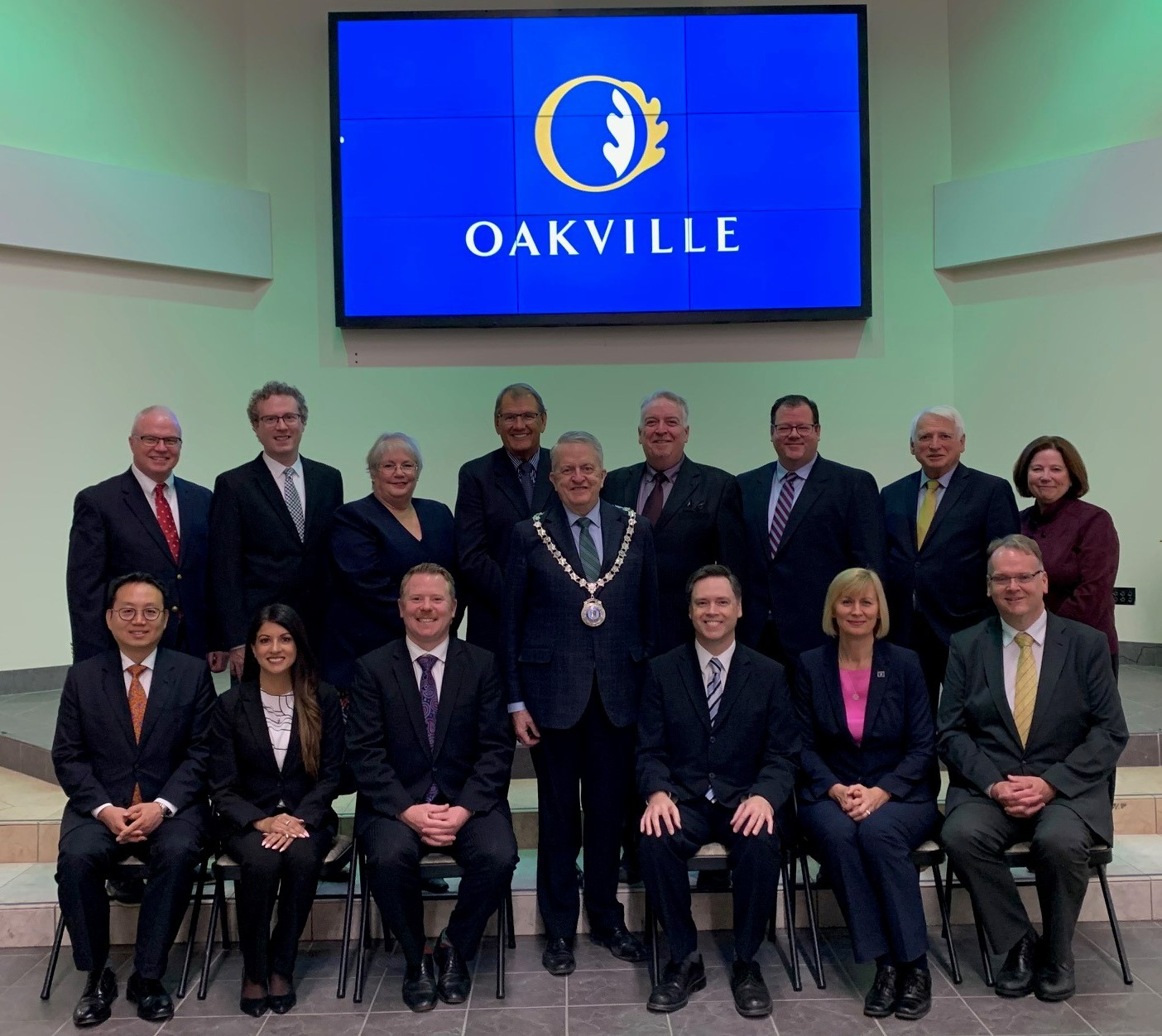
A century ago, Oakville was only one per cent of the size it is today.
The town now accommodates about 335,000 jobs and residents.
And over the next three decades, it will need to grow another 50 per cent larger – to 510,000 jobs and residents by 2051.
But that growth is manageable, newly re-elected Oakville mayor Rob Burton said at the first meeting of the town’s 2022-2026 council on Nov. 21.
"That’s only 1.7 per cent a year. We grew 1.9 per cent a year for the last 16 years, so I think we can do this," he said.
"And growth won’t end in 2051. In Ontario, you are never allowed to say you are full."
Manageable or not, decisions on how many people will live in Oakville – and increasingly, where they will live – are made by the province, not by town council, Burton added.
"People could, perhaps, wonder why we even have a council," he said.
But while acknowledging the rapid-fire series of changes that the "all-powerful" provincial government is imposing on municipalities, Burton brought a cheerful, upbeat tone to his first speech of the new term.
Growth is healthy, whether for families, businesses or towns, he said.
"We will have more people to meet and make friends with and do business with and play sports and volunteer with," he said. "We’ll have more things to do and more places to do them."
"We are a vibrant, successful town, a vibrant successful people. We will confidently and cheerfully keep up with the future."
As proposed heights for new towers rapidly skyrocket – with some planned for nearly 60 storeys around the Oakville GO station – high-rises were a hot-button topic during the municipal election.
Mayoral challenger Julia Hanna, who came within 1,000 votes of unseating Burton, argued that Oakville doesn’t have the infrastructure in place to deal with such large clusters of people.
On the campaign trail, Burton said that maximizing high-rise, high-density growth is how the town will protect the low-density neighbourhoods that so many residents currently live in.
It was a theme he repeated on Monday.
"Some day, the streets where we live will have to have a big increase in density," he said.
"How soon and how much our streets will change depends on how well high-rise, high-density does here. It’s in our self-interest to see it does as well as possible."
And while the province is dictating the growth that will come to Oakville, Burton noted that council has the job of building the amenities that people and businesses need to "thrive and shine" in the town.
"Building the things we need and want to have in order to have a more enjoyable, welcoming, sustainable and liveable life here, is fun and fulfilling work."
"We will have quite a lot of fun and fulfilling work to do ahead of us for the foreseeable future," he concluded.
Councillors sworn in for new term of office
The inaugural meeting saw Burton and Oakville’s 14 councillors officially sworn into office.
Anita Anand and Pam Damoff, the federal members of parliament representing Oakville’s two ridings, were on hand to offer congratulations.
Anand, Canada’s Minister of National Defence, said difficult global times highlight how fortunate Canadians are to live in a democracy.
She reminded councillors of the "enormous privilege" they have in occupying elected office.
"Our democracy in Canada is sacred, but it’s also fragile, and we all have a responsibility to protect it and respect it," she said.
The town’s two provincial politicians were notably absent from the meeting.
Both Stephen Crawford, who represents the Oakville riding, and Effie Triantafilopoulos, who represents the Oakville North – Burlington riding, are members of Doug Ford’s Progressive Conservative government.
The two may not have anticipated a warm welcome following a series of controversial announcements from the Ford government in recent weeks.
Those include:
- Legislation that proposes a wide range of changes to Ontario’s planning and development rules in the name of increasing housing supply. Bill 23 will reduce the power that municipalities and conservation authorities have to regulate development while also cutting the fees that help pay for growth-related infrastructure
- An order to Halton to expand its urban boundary to allow additional greenfield development
- Expansion of development into the Greenbelt, a protected swath of greenspace in southern Ontario that Ford previously promised not to touch
- Legislation that will appoint provincial facilitators to review regional governments, including in Halton, with an eye to expanding strong mayor powers
While Triantafilopoulos sent her regrets, along with congratulatory remarks, Crawford didn’t even get a mention during the meeting.
Afterwards, his office said he was occupied in meetings at Queen’s Park but sent notes of congratulations to the councillors.